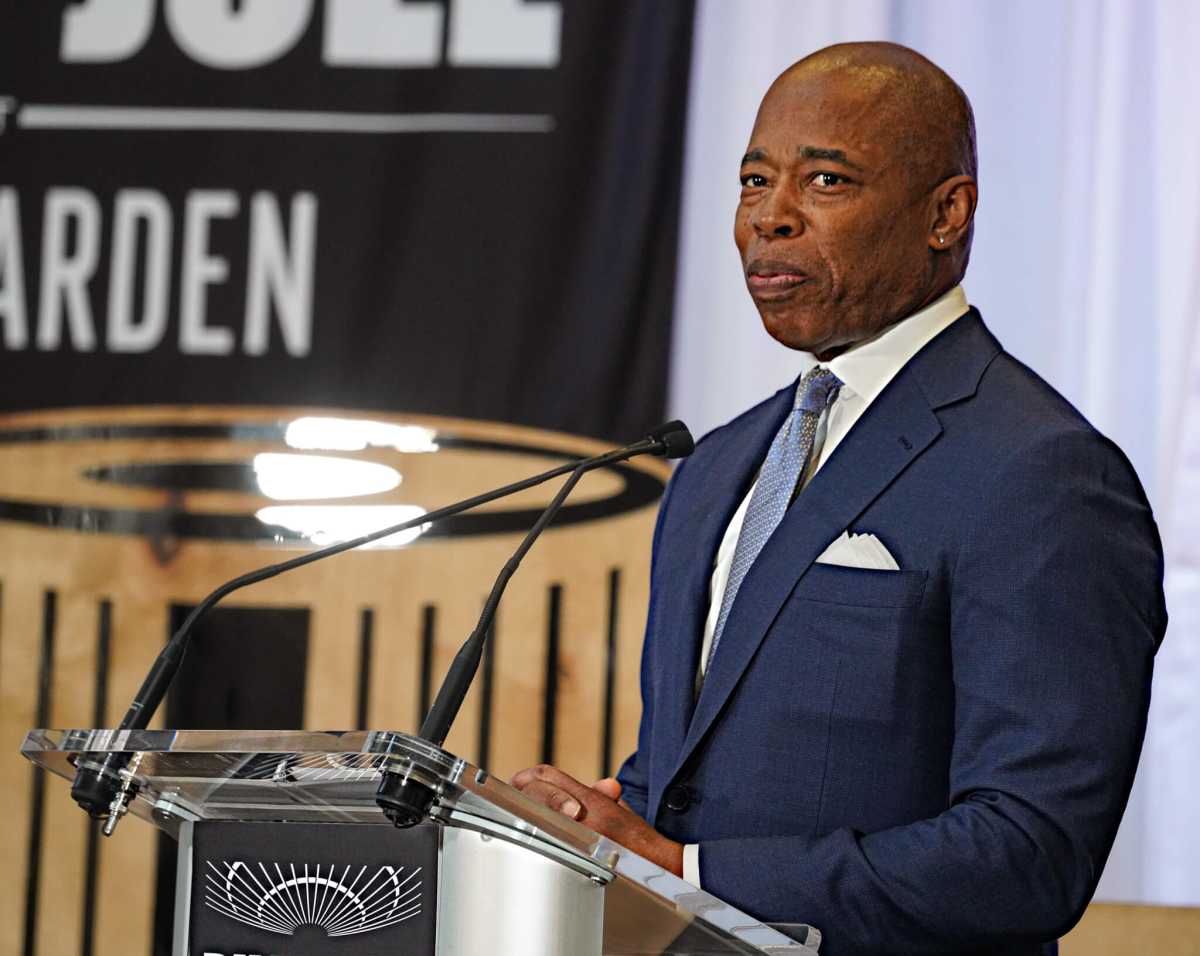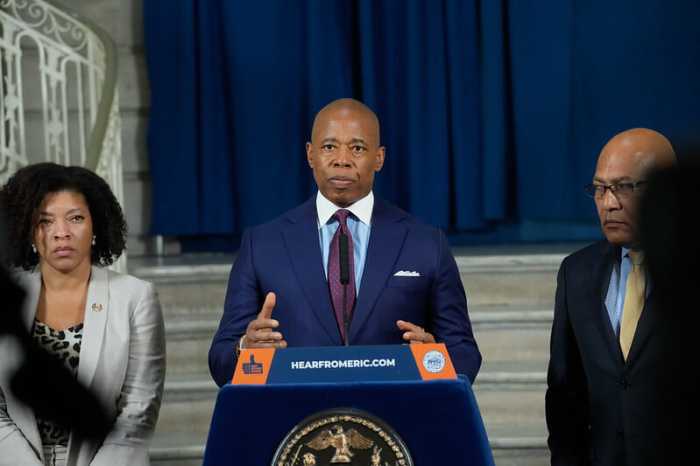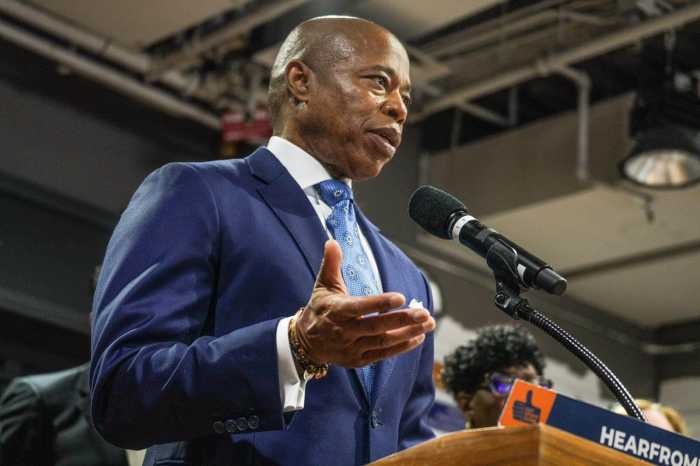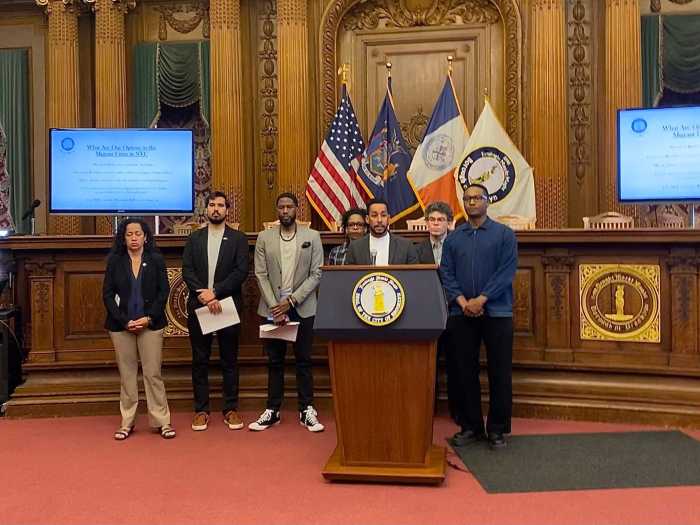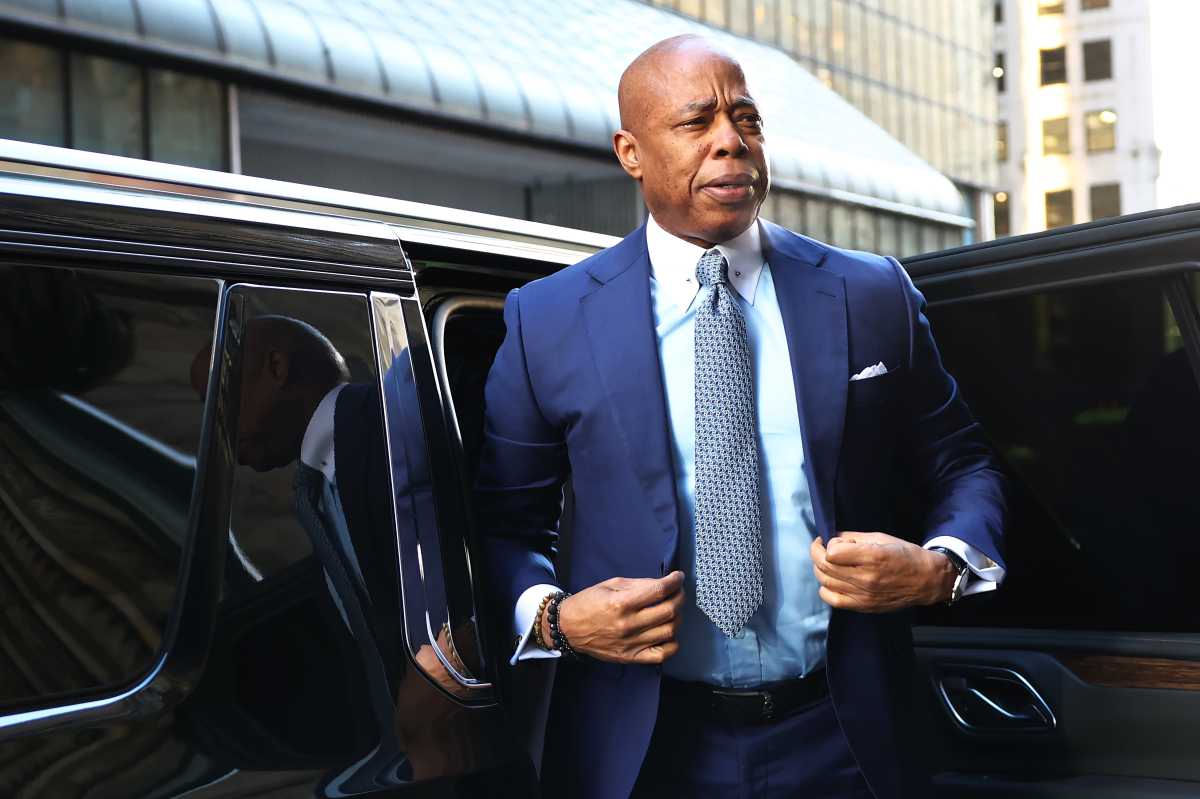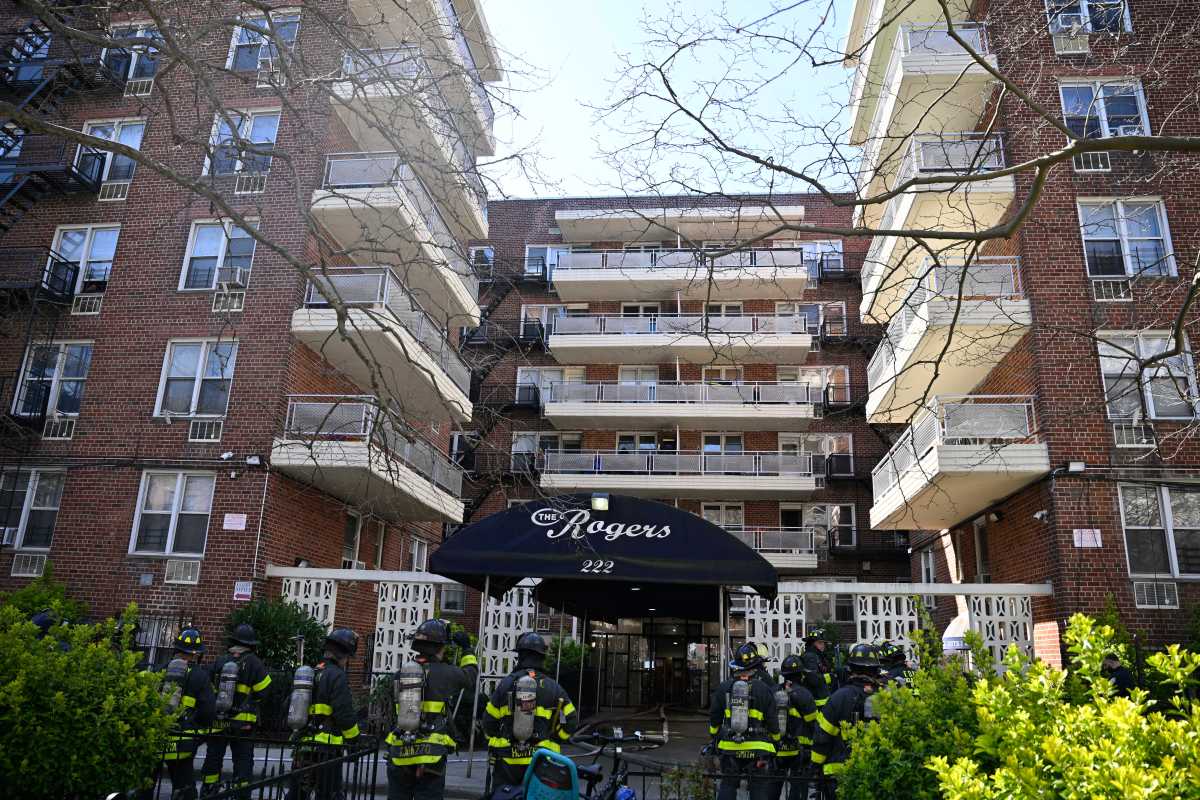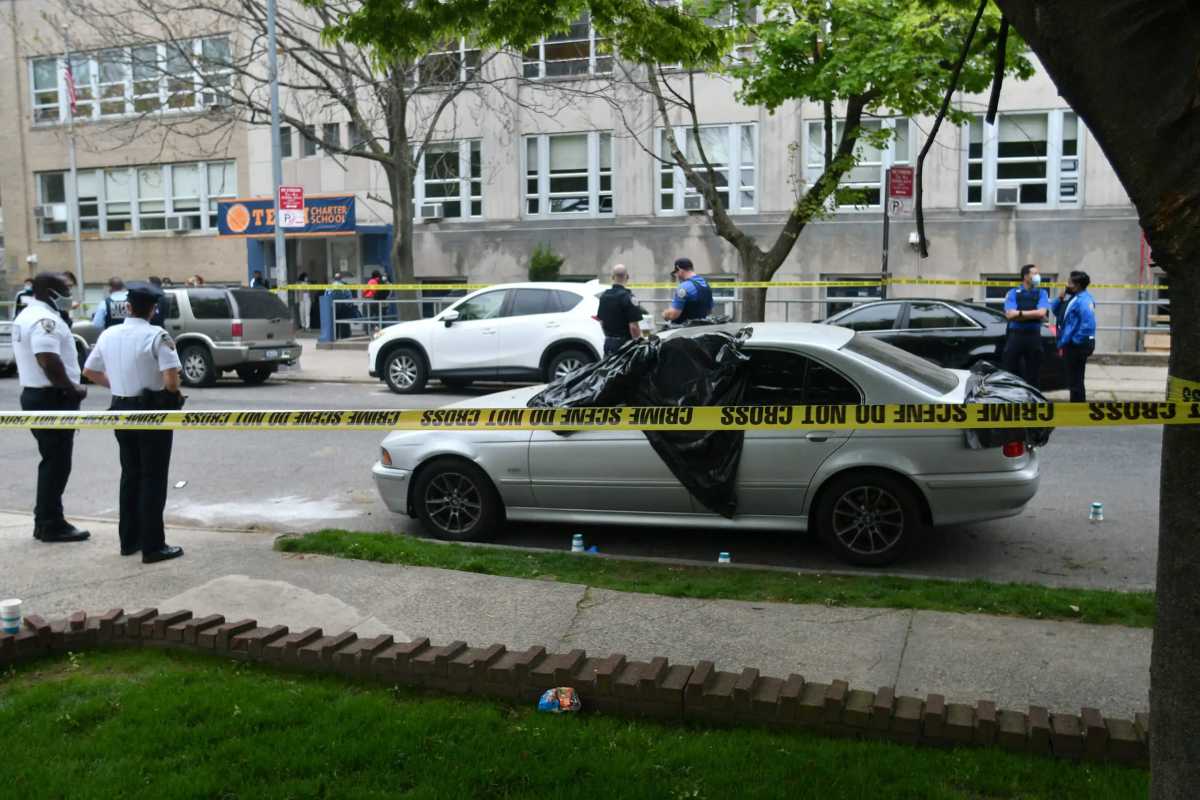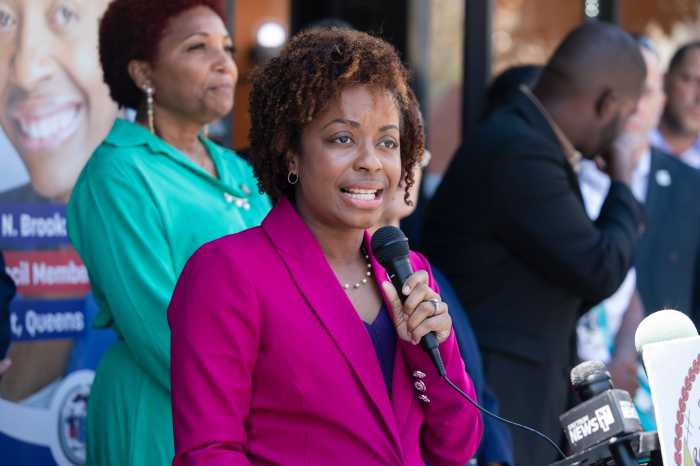Reaching a balanced budget for the next fiscal year will be “painful,” Mayor Eric Adams said Thursday as negotiations over a spending plan that must pass by July 1 kick off this month.
Hizzoner made the remarks in reference to crafting a balanced budget that accounts for the minimum $4.3 billion his office expects to spend on providing for tens of thousands of asylum seekers between this fiscal year and the next. The cost projection, Adams has repeatedly said, has driven recent rounds of wide-ranging spending cuts to the city’s libraries, social services programs and public university system.
“We have to balance the budget, that’s what the law calls for. We’re going to do that. It’s going to be painful,” the mayor said during an unrelated press conference Thursday.
“I’ve said this over and over again, this is not new, we can just go back to the tapes: ‘every service in the city is going to be impacted by this asylum and migrant crisis that we’re facing,’” he added.
The mayor’s comments are the latest in an escalating tit-for-tat between his administration and the City Council as both sides gear up to negotiate his $107 billion Fiscal Year 2024 executive budget.
Adams and his budget office argue that the migrant crisis—along with other projected expenses stemming from deals with public sector labor unions and current costs from the latest state budget— means that this year’s final spending agreement must maintain the cuts he’s made to the budgets of almost every city agency. Many council members, on the other hand, say there’s enough money to reverse the mayor’s cuts and even put additional dollars into several programs due to a better-than-expected city tax revenue forecast.
City Hall has maintained the council isn’t being realistic about the city’s finances — arguing that it is only considering the money coming in and not the considerable unanticipated expenses the Big Apple faces.
“I’m still hearing City Council members every day calling for more spending, more spending, you know, spend more millions here, more millions here,” Adams said. “I’m just not quite understanding, do folks understand the basic level of accounting? You spend what you take in. And we have to balance a budget that dropped us with a $4.3 billion price tag out of nowhere.”
The city has to bear that cost, Adams said, without much help from the federal government, which has only so far given it $38.5 million out of an $800 million pot that Congress appropriated to the Federal Emergency Management Agency (FEMA) for helping cities receiving the bulk of asylum seekers last year. Furthermore, $1 billion in migrant crisis aid approved in the state budget won’t be fully realized by the city due to $500 million in cuts and cost shifts, Adams’ office has said.
The mayor also once again didn’t rule out the possibility of his office and the council blowing past their July 1 budget deadline, repeating a recent suggestion from his budget director, Jacques Jiha, that the upcoming June 27 council primary will give them a tight window to pass the plan.
“It is imperative that we get a budget done,” Adams said. “I know primary elections are coming up but we can’t put politics in the way. We are ready. The negotiations should start now, immediately, because it takes time to do this.”
Council leadership, however, says the primary won’t interfere with passing an on-time budget.
“We just finished two weeks of budget hearings and we have a lot of work to do in order to get this budget to a good place but the ‘late budget’ narrative isn’t coming from our side of City Hall,” City Council Finance Chair told amNewYork Metro in a statement Wednesday.
Late budgets are common in Albany — both of Governor Kathy Hochul’s budgets have been late, since she took office in 2021, but are much more of an anomaly at the city level.
Additionally, Brannan and Council Speaker Adrienne Adams, have taken great umbridge with Adams and Jiha’s contention that they only consider revenue and not expenses.
“The Council is not a rubber stamp, nor is this a monarchy. Rather, we are a co-equal branch of city government, and we will not respond to arrogance and tolerate disrespect,” Brannan said in a separate statement on Wednesday.
Political scientist Basil Smikle — who runs Hunter College’s Public Policy Program — said he expects there to be “some tension” around negotiating the budget, with both sides digging in to fight for conflicting priorities. While the mayor’s desire to navigate the migrant crisis has pushed him to craft an austerity budget, Smikle said, many progressive council members are pushing for the exact opposite, as they’re trying to deliver for their constituents during the current election cycle.
“You have a very progressive City Council, whose members are up again for re-election in a few weeks,” Smikle said. “So they want to be able to talk about, not just fulfilling promises from the prior election, but setting the tone for what they might do with another opportunity to serve. So they’re in a sort of odd reelection posture. But the mayor is facing a budget that no mayor has seen in modern history with respect to the management of this migrant crisis.”
Smikle noted that while a late budget is “possible” it will make both the mayor and the council look bad, attracting more negative attention than any recent state budget. That’s because voters at the city level would likely draw a direct connection between dysfunction at City Hall and its impact on city services.
“More so than they did with Albany, New York City voters will draw a direct connection between a late budget and an inability to seal a deal and their day-to-day lives,” he said. “And that will be problematic for both the council and the administration.”



